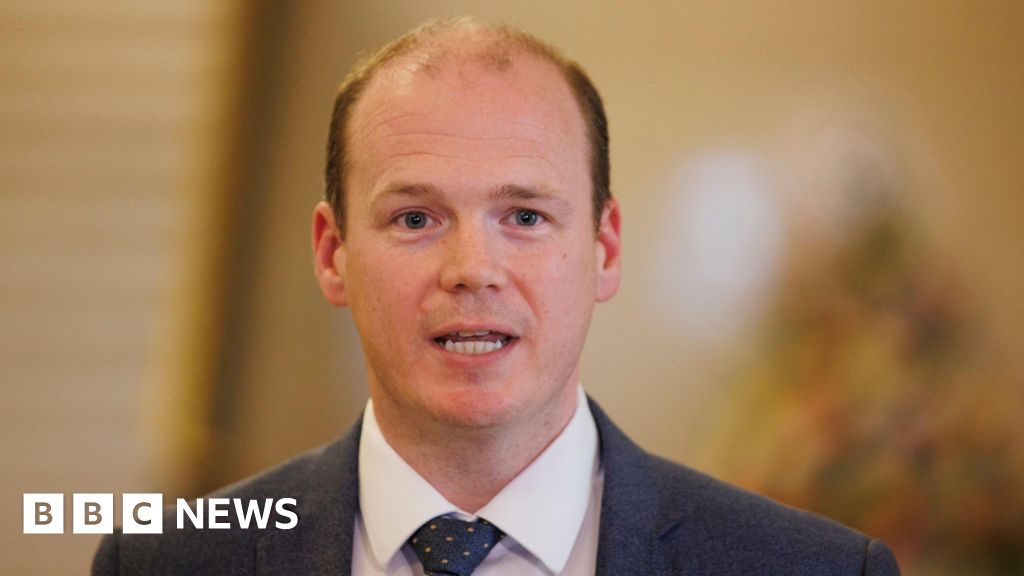ARTICLE AD BOX
By Ben King
Business reporter, BBC News
Image source, Getty Images
The Bank of England has raised interest rates for the first time in more than three years, in response to calls to tackle surging inflation.
The Bank's Monetary Policy Committee voted 8-1 in favour of the increase to 0.25% - up from the record low of 0.1%.
How do interest rates affect me?
Setting interest rates - officially known as Bank Rate - is one of the many ways the Bank of England tries to control the UK economy.
If interest rates rise, it can make borrowing more expensive - especially for homeowners with mortgages - but it can also give savers a better return.
Some mortgages - called "trackers" - are directly linked to the Bank of England's interest rates.
The Bank's decision to raise interest rates to 0.25% will add just over £15 to the typical monthly repayment for a tracker-mortgage customer.
Someone on a fixed-rate mortgage may also find their next deal is more expensive (or cheaper) depending on how Bank of England interest rates have changed since their last deal.
As well as mortgages, Bank Rate also influences the interest rates charged on other forms of credit, such as credit card loans, bank loans, and car loans. So even if you don't have a mortgage, changes in interest rates could still have an impact on your finances.
It also affects the interest rates people earn on their savings.
An increase in Bank Rate is usually passed on to some extent by individual banks, so people earn more on their savings.
The recent period of low Bank Rates has seen savings rates fall sharply.
How does the Bank of England set interest rates?
The Bank of England uses changes in the interest rate to decide at which level it will lend money to other banks for a single day.
By altering this rate, the Bank hopes to keep prices stable and keep the economy growing at a steady pace.
Interest rates are decided by a team of nine economists, the Monetary Policy Committee.
It meets eight times a year - roughly once every six weeks - to consider data on how the economy is performing.
And its decision is always published at 12:00 on a Thursday.
How does Bank Rate work?
If Bank Rate goes up, it is intended to encourage High Street banks to put up the interest rates they charge individuals and businesses.
Image source, Getty Images
Higher interest rates mean people receive a better return on their savings, which should encourage them to save rather than spend.
Encouraging people to save should slow the increase in prices of everyday goods. With fewer buyers in the market, sellers will find it hard to put their prices up.
On the other hand, cutting interest rates makes it cheaper to borrow money and people get less return on their savings. This should encourage spending and help prices rise a little faster.
What is the inflation target?
The Bank of England will raise or lower Bank Rate to help maintain its 2% inflation target.
Inflation is the rate at which prices are rising - if the cost of a £1 jar of jam rises by 5p, then jam inflation is 5%.
If prices - sometimes known as the cost of living - are rising faster than 2% a year, the Bank will consider putting up the Bank Rate.
The latest figures show the cost of living surged by 5.1% in the 12 months to November, the highest annual rise since September 2011.
Image source, Reuters
Image caption,Andrew Bailey, governor of the Bank of England
How has Bank Rate changed recently?
After the 2008 global financial crisis, the Bank of England was afraid that the economy would crash, so it cut Bank Rate to 0.5% in 2009.
This was good news for many mortgage borrowers, who found their borrowing costs much lower than they had expected.
The Bank of England wanted to do even more to stimulate the economy, so it tried a new approach to lower borrowing costs by creating new money electronically - called quantitative easing.
Since then, the Bank has cut rates twice. In 2016, it cut Bank Rate when the economy faced uncertainty following the referendum vote to leave the European Union.
And in 2020, it cut Bank Rate to its lowest-ever level of 0.1% as the coronavirus pandemic caused the biggest economic slowdown for centuries.
The Bank of England has never cut Bank Rate below zero, though this approach has been considered recently.

 3 years ago
75
3 years ago
75








 English (US) ·
English (US) ·